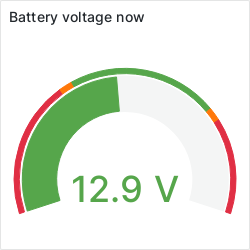Tonight I learned something disturbing… I heard hear-say evidence that someone I know, had made the decision to obtain a fraudulent COVID-19 vaccination certificate for the purpose of bypassing the upcoming restrictions due to be applied on the 17th December, 2021.
Now, it comes as no surprise that people will want to dodge this. I won’t identify the individual who is trying to dodge the requirements in this case, nor will I reveal my source. As what I have is hear-say evidence, this is not admissible in a court of law, and it would be wrong for me to name or identify the person in any way.
No doubt though, the authorities have considered this possibility. They cracked down on one “doctor”, who was found to be issuing fraudulent documents a little over a month ago. She isn’t the first, won’t be the last either. It’s not entirely clear looking at the Queensland Government website what the penalties are for supplying fraudulent documentation. One thing I know for certain, I do not want to be on the receiving end. I do not want to have to justify my presence because someone I go to a restaurant with chooses to break the rules.
My biggest fear in this is two-fold:
- Fear of prosecution from association with the individual committing fraud
- Fear of knee-jerk restrictions being applied to everybody because a small number could not follow the rules
We’ve seen #2 already this pandemic. It’s why we’ve got this silly check-in program in the first place. I’ve already made my thoughts clear on that.
What worries me is it’s unknown at this stage how the certificate can be verified. There are two possible ways I can think of: the Individual Healthcare Identifier and the Document number, both of which appear on the MyGov-issued certificates. Are the staff members at venues able to validate these documents somehow? How do they know they’re looking at a genuine certificate? Is it a matter of blind-faith, or can they punch these details in and come up with something that says yay or nay?
I’m guessing the police have some way of verifying this, but, as a staff member at a venue, do you really want to be calling the police on patrons just because you have a “gut feeling” that something is fishy? How is this going to be policed really?
Surprise!
Let’s play devil’s advocate and suggest that indeed, there will be surprise inspections by the constabulary. Presumably they have a way of validating these certificates, otherwise what is the point? Now, suppose for arguments sake, one or two people are found to be holding fraudulent documents.
What then? Clearly, the guilty parties will have some explaining to do. What about the rest of us at that table, are we guilty by association? How about the business owner? The staff who were working that shift?
Cough! Sneeze! I’m not feeling well!
The other prospect is even worse, suppose that a few of us come down with an illness, get tested, and it winds up being one of the many strains floating around. Maybe it’s original-recipe COVID-19, maybe it’s Alpha, or Delta… this new Omicron variant… would you like some Pi with that? (You know, the irrational one that never ends!)
You’ve had to check-in (or maybe you don’t, but others you were with did, and they say you were there too — and CCTV backs their story up). Queensland Health looks up your details, and hang on, you’re not vaccinated. They check with venue staff, “Ohh yes, that person did show me a certificate and it looked valid”.
Hmmm, dear sir/madam, could you please show us your certificate? Ohh, you haven’t got one? The staff at the restaurant say you do. BUSTED! You’d either be charged for failing to follow a health direction, or charged with fraud, possibly both.
What’s worse with this hypothetical situation is that you and the people you’re with are then exposed to a deadly virus. At least with the surprise inspection in the previous hypothetical situation no one gets sick.
The end game
Really, I hope that we can move on from this. The worst possible situation we can wind up with is that the privilege of going out and doing things is revoked from everybody because a small minority (less than 10% of the Queensland population) refuse to do the right thing by everyone else.
I don’t want to be hassled by staff at the door everywhere I go. This will not end if people keep flouting rules! It used to be just hospitality venues where you needed to sign-in, it was done on paper, and life was simple, but then Queensland Health learned that today’s adults can’t write properly. If they mandate proprietary check-in software programs, then those of us who do not have a suitable phone are needlessly excluded from participation in society through no fault of their own.
We will eventually get to the stage where we treat COVID-19 like every other coronavirus out there. The common flu is, after all, a member of that same family, and we never needed check-in programs for that. Some aged-care centres will insist on seeing vaccination certificates, but you could get a coffee without fear of being interrogated. We are not there yet though. We’ve probably got another year of this… so we’re maybe ⅔ of the way through. Please don’t blow it for all of us!





Recent Comments